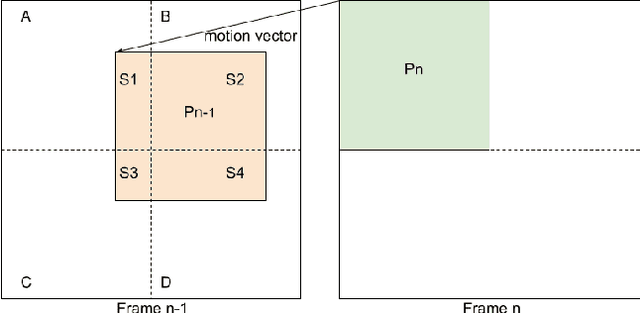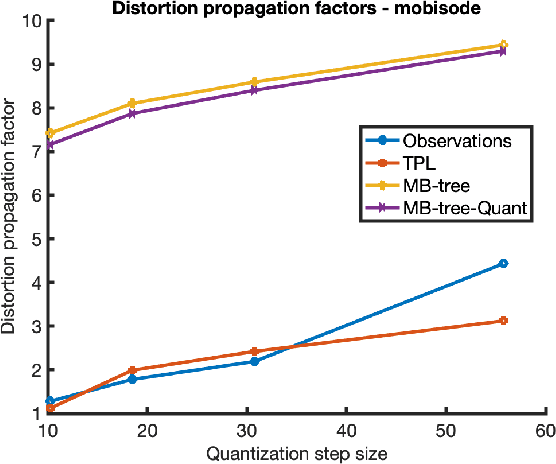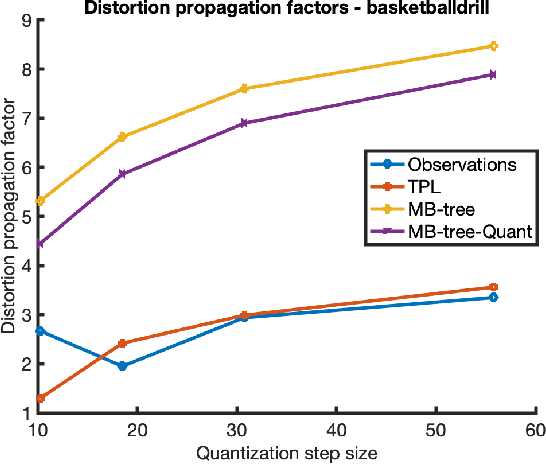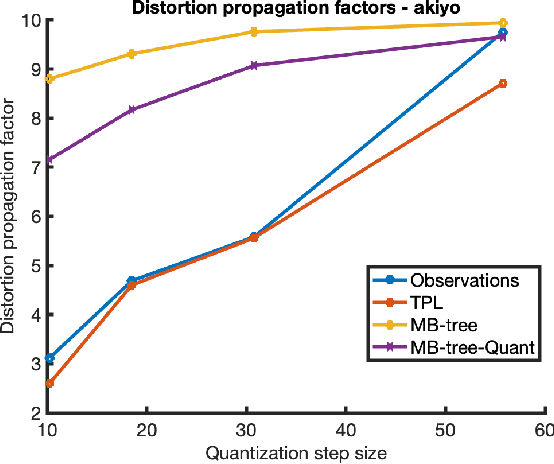A Quantitative Approach To The Temporal Dependency in Video Coding
Paper and Code
Aug 26, 2021



Motion compensated prediction is central to the efficiency of video compression. Its predictive coding scheme propagates the quantization distortion through the prediction chain and creates a temporal dependency. Prior research typically models the distortion propagation based on the similarity between original pixels under the assumption of high resolution quantization. Its efficacy in the low to medium bit-rate range, where the quantization step size is largely comparable to the magnitude of the residual signals, is questionable. This work proposes a quantitative approach to estimating the temporal dependency. It evaluates the rate and distortion for each coding block using the original and the reconstructed motion compensation reference blocks, respectively. Their difference effectively measures how the quantization error in the reference block impacts the coding efficiency of the current block. A recursive update process is formulated to track such dependency through a group of pictures. The proposed scheme quantifies the temporal dependency more accurately across a wide range of operating bit-rates, which translates into considerable coding performance gains over the existing contenders as demonstrated in the experiments.
 Add to Chrome
Add to Chrome Add to Firefox
Add to Firefox Add to Edge
Add to Edge